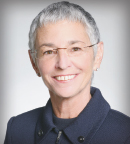National surveys consistently show that spirituality and religion are important components in the lives of most Americans, with more than 90% of adults expressing a belief in God and more than 70% identifying religion as one of the most important influences in their lives.1 Studies also show that patients with cancer and their family caregivers rely on spirituality and religion to help them cope with the disease and that they want their specific spiritual needs and concerns acknowledged or addressed by their oncology medical team.1 In addition, the physical and psychosocial health benefits these patients derive from their religious beliefs are significant.
According to research, patients with cancer who have high levels of spiritual well-being report having a better quality of life, lower levels of depression, less anxiety about death, and lower levels of distress. These patients also report finding meaning and a sense of health in their lives.2
In recognition that patients with cancer often experience not just physical and psychosocial suffering after a diagnosis, but spiritual suffering as well, in 2016, ASCO and the American Academy of Hospice and Palliative Medicine issued a joint statement defining spiritual and cultural care as one of the nine components of high-quality palliative care in oncology practice.3 Two years later, ASCO included the integration of spiritual care in its guidelines for palliative care in the global setting.4
Assessing the Importance of Religion in Patients’ Lives
Providing holistic care that includes addressing the physical, psychosocial, and spiritual needs of patients is central to the clinical practice of Tracy A. Balboni, MD, MPH, FAAHPM, Professor, Radiation Oncology at Harvard Medical School; Clinical Director, Supportive and Palliative Oncology Service at Dana-Farber/Brigham and Women’s Cancer Center; and Residency Program Director of Harvard Radiation Oncology Program. In recognition of her clinical and research interests in the intersection of oncology, palliative care, and the role of spirituality in life-threatening illnesses, Dr. Balboni received the Walther Cancer Foundation Palliative and Supportive Care in Oncology Endowed Award during the 2021 ASCO Annual Meeting.
In her accompanying lecture, “Historical and Empirical Reflections on Spirituality in Cancer Care,” Dr. Balboni said: “Spirituality plays a major role in patient well-being and decision-making.” She cited pivotal research showing the impact spirituality and/or religion has on patients with advanced cancer. In one multisite study, scripted interviews were conducted to assess the role and importance of religion or spirituality in the lives of patients facing terminal cancer. The findings showed that most patients, 78%, agreed their religion and/or spirituality had been important in their cancer experience. A total of 74% of the patients reported that their faith helped them cope with the stresses of their illness, and 58% identified spiritual practice, such as, prayer, as being helpful.5
In an interview with The ASCO Post, Dr. Balboni discussed the importance of spirituality in palliative medicine and in patients’ end-of-life decision-making; and how oncologists’ sense of purpose and vocation can be spiritually nurturing.

Our attention to patients’ spiritual needs may help them transition to more quality-of-life–focused care.— Tracy A. Balboni, MD, MPH, FAAHPM
Tweet this quote
Defining Spirituality
What is your definition of spirituality?
According to the International Consensus Conference, spirituality is defined as a “dynamic and intrinsic aspect of humanity through which persons seek ultimate meaning, purpose, and transcendence, and experience relationship to self, family, others, community, society, nature, and the significant or sacred. Spirituality is expressed through beliefs, values, traditions, and practices.”
This definition highlights the diversity of ways that individuals may experience their spirituality. It also underscores how spirituality can underlie core values, which may inform choices patients make from survivorship to the end of life.
Coping With Advanced Cancer
What role does spirituality play in palliative medicine, in patients’ treatment decision-making, and in end-of-life decision-making?
My colleague Daniel Sulmasy, MD, PhD [Director and Senior Research Scholar of the Kennedy Institute of Ethnics at Georgetown University], well summarized the role that spirituality can play in illness by saying that “illness is a spiritual experience.” For most patients, spirituality is important to them, particularly in the context of serious illness and how they experience that illness. And although a person’s religion or spirituality can be a source of comfort and a way to cope with advanced cancer, it can also be a source of distress. For example, patients can feel spiritual distress or pain from losses that are experienced because of cancer or other challenging spiritual concerns, such as feeling spiritually abandoned or punished.
Patients can also experience spiritual concerns and conflicts as they approach end-of-life medical decision-making. For example, if a patient believes that God can perform a miracle and cure the patient of cancer, the patient might feel some tension about whether to continue with anticancer treatment. Alternatively, the patient may feel that not pursuing cancer therapy is the equivalent of not upholding the sanctity of life. As spiritual beliefs, they are core values and sources of meaning that we as caregivers must honor and respect. We can do this in our care—with the help of a spiritual care professional, such as a chaplain—by engaging patients’ spiritual beliefs respectfully as they consider their medical decisions.
The goal is to help patients in a person-centered fashion navigate decision-making in a way that honors all they are, from the realities of illness to their core sources of meaning and value.
Seeking Spiritual Support From the Medical Team
Do patients who have a religious belief suffer less than patients without a religious belief system?
Research does suggest that people who rely on spiritual coping in illness tend to preserve a higher quality of life than those without such a framework for managing the stresses of illness. One hypothesis as to why spiritual coping might contribute to better quality of life is that those who have a framework for meaning that is independent of one’s physical status may be better able to preserve meaning and value despite the physical stresses of illness.
Some additional compelling research comes from the Coping With Cancer Study of patients with advanced cancer. It shows that terminally ill patients who receive spiritual support from their medical teams are more likely to use hospice care, seek less aggressive treatments, and have a better-quality end of life.6 These findings suggest that our attention to patients’ spiritual needs may help them transition to more quality-of-life–focused care, perhaps in part because we as a team are upholding sources of meaning that are found outside of the realities of illness.
GUEST EDITOR

Jamie H. Von Roenn, MD, FASCO
Asking Patients About Their Spiritual Needs
Should oncologists ask patients about their spirituality or religion? How well trained are oncologists in terms of spirituality to comfortably discuss the topic with their patients?
Yes, we should ask patients about their spiritual outlook. This can be done with a simple spiritual history as part of a social history. We can ask about other forms of spiritual care patients might want, for example, a visit from a spiritual care professional while they are in the hospital. However, medical training in this area is inadequate. Most medical schools do include competencies around spirituality and training in taking a patient’s spiritual history in conjunction with a medical history. However, our research shows that most patients with advanced cancer never receive any type of spiritual care from their oncologists or their oncology nurses, and we think that lack of training is the main barrier.7
The role of the oncologist in spiritual care is circumscribed. Spiritual care does not require oncologists to have in-depth conversations with their patients about their spirituality, although at times, such conversations may arise and can be appropriate provided they are entirely patient-centered. Rather the role of the oncologist is in taking a simple spiritual history by asking, for example: “Do you have a faith or spirituality that is important to you?” Such a question, easily included in a patient’s social history, can help oncologists understand the role of spirituality for a patient. Furthermore, such an inquiry signals to patients that they are seen as a whole person and that their spirituality is respected and understood as potentially important in illness.
Or we can just ask what is meaningful to the patient, for example, exercising, going for nature walks, or being with grandchildren. This provides important information about the patient’s life and support system, and how treatment might impact the patient’s lifestyle and quality of life.
Honoring Patients’ Core Values
What should oncologists do if treatment conflicts with a patient’s religion or spiritual beliefs?
All the care we provide should be patient-centered to honor patients’ core values. Rather than immediately stereotyping a patient who refuses treatment due to a religious objection, we should go deeper and ask the patient to give more details of his or her concern. For example, we can say: “Tell me more about that belief. I want to understand, so I can better support you.”
We should be respectful of patients’ choices. Perhaps we can have them engage with the hospital chaplain or suggest they talk over the issues with their religious leader. Our goal is to listen to patients and understand as best we can any potential problems and then seek additional input from the medical chaplain, who is trained to engage with patients and help oncologists find a resolution.
Seeking Meaning and Purpose in Physicians’ Lives
What role does spirituality play in physicians’ health and well-being?
We all have ways of seeking meaning, purpose, and value in our lives and in our work. Many clinicians approach their work with a core “spiritual calling,” or a sense that their vocation serves purposes and meanings found within but also transcends the technical realities of cancer.
For me, and I think for many other clinicians, caring for patients holistically, including recognizing their spirituality, helps me to recognize deeper sources of meaning that make work more sustainable and, ultimately, more fully the vocation it is meant to be.
DISCLOSURE: Dr. Balboni has received grant funding from the National Institute of Arthritis and Musculoskeletal and Skin Diseases Extramural Program and the Sir John Templeton Foundation.
REFERENCES
1. National Cancer Institute: Spirituality in Cancer Care (PDQ®)-Health Professional Version. Available at www.cancer.gov/about-cancer/coping/day-to-day/faith-and-spirituality/spirituality-hp-pdq. Accessed November 3, 2021.
2. Lee YH: Spiritual care for cancer patients. Asia Pac J Oncol Nurs 6:101-103, 2019.
3. Bickel KE, McNiff K, Buss MK, et al: Defining high-quality palliative care in oncology practice: An American Society of Clinical Oncology/American Academy of Hospice and Palliative Medicine guidance statement. J Oncol Pract 12:e828-e838, 2016.
4. Osman H, Shrestha S, Temin S, et al: Palliative care in the global setting: ASCO resource-stratified practice guideline. J Glob Oncol 4:1-24, 2018.
5. Alcorn SR, Balboni MJ, Prigerson HG, et al: ‘If God wanted me yesterday, I wouldn’t be here today’: Religious and spiritual themes in patients’ experiences of advanced cancer. J Palliat Med 13:581-588, 2010.
6. Wright AA, Zhang B, Ray A, et al: Associations between end-of-life discussions, patient mental health, medical care near death, and caregiver bereavement adjustment. JAMA 300:1665-1673, 2008.
7. Balboni MJ, Sullivan A, Amobi A, et al: Why is spiritual care infrequent at the end of life? Spiritual care perceptions among patients, nurses, and physicians and the role of training. J Clin Oncol 31:461-467, 2013.

